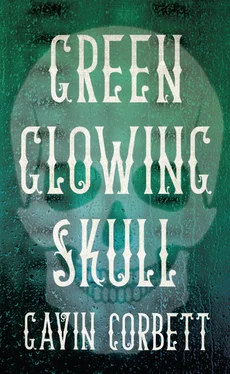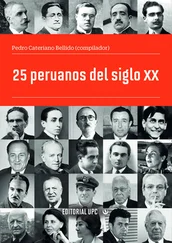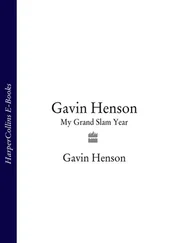His hand was on Jean’s knee. He was staring up at her with fierce electric eyes.
‘Please,’ he said. ‘Give yourself up. Become an animal.’
‘Mister … Logan.’
She lifted her hand from the bed. An inch from his a snap was heard and simultaneously a jolt ran through her body. They both winced; he jumped back into his seat.
‘Mister Logan,’ she said.
He kept his gaze on her as if nothing had just happened; his jaw, though, trembled like a sick dog’s. He said, ‘You should go to America. Anyone can make themselves up over there. Some people call it a project, not a country.’
‘It’s not that I —’
‘It’s true, all that they say.’
He hoisted his chair around so that he was sitting into the desk. Then he stood up and handed her a piece of the hotel’s headed paper with his American contact details scribbled on it.
She went away with her admiration for the man deepened. He had great purpose of movement and manner, and great control over atmosphere, and yet there was a pitiable quality about him that would make him a fine job for some wife some day, she thought. She went away too with his call for her to become an animal resounding in her head, remembering how she herself had called out to be transformed into an animal on Mazzard Hill the previous weekend. In the days after, it was those words, and the pleading delivery, that most stayed with her from her encounter with the man, his cry reinforcing her earlier thought. From a bench in Mount Argus she took keen notice of a ruck of pigeons making a meal of the crusts of her sandwich, crusts that lay on the dirty ground and that in any event were covered in large human germs from her lips, and she thought of the pigeons’ tiny fast-beating hearts and wondered how they survived. On another day in Rathgar she saw a dog sniff and then lick and then eat its own filth: and this was not a street dog but a small and clearly well-looked-after animal that was as clean and well groomed as its owner. She decided that it would not be a bad idea to test her own system out by being careless about food cleanliness. She began by deliberately dropping a couple of slices of apple on her floor, waiting for them to go brown, and then picking them up and eating them. Then she tried a pinch of cold potato from the plughole of her sink. Over the next week she ate whatever she could find in public waste bins. By the end of that week she was quite sick. The sickness manifested itself as vomiting but also an added fluttering in her heart. It was then that her fainting fits began.
The Filipina lady, Rosa, came in and tossed some logs from the basket into the grate. She watched for a minute until the wood caught flame, and sighed along with the hissing. The drawing room filled with a churchy smell. She scolded them for letting the fire go so low. ‘You can’t let it look like a picture of the fire I take for my children,’ she said. ‘Even when the fire is angry, when I take a picture of it for my children it doesn’t look angry. And when I come in the room I was not looking at a picture of it for my children and it didn’t look angry.’
Without quite knowing what she was talking about everybody in the room felt the scorn in her words. They all looked glumly at the flame-wrapped logs. Each man — there were seven of them — turned in his seat towards the fire even if it put a crick in his neck. They stared straight in at the flames with shamed expressions and dared not look Rosa in the eye. The room was quiet tonight because a monthly board meeting was on and all the most boisterous and go-ahead club members were upstairs in attendance, or where they usually were: inside, playing cards.
Rosa put her hand on the shining soapstone chimney breast and leaned against it and shouted at them like some fat southern housemaid from the bad old times. ‘You’re like babies, all of you. I leave you alone for an hour and you’re like babies.’
Normally Rosa was not in such bristly form. But sometimes when she felt she had a nice group of them like this on their own she let them have it. It was almost as if she were punishing them for being the weaker ones. When she left the room every man turned back to face the way that was most comfortable for him. Then the heavy oak door burst open with unseemly force, and a club member called Lancelot, a normally elegant and sullen grey-bearded black man, charged into the room with pursed lips, bowed head and excitement in his eyes.
‘Evening, Lancelot,’ muttered the men in staggered unison.
Lancelot went to the middle of the room and sat on the wooden chest there, knocking over a pile of golf magazines. Nobody had sat on the three-hundred-year-old chest before. It groaned under Lancelot’s huge weight. He crossed his legs. The logs snapped in the grate. The only other sound was of Lancelot’s breath.
‘Gentlemen,’ he said. ‘Some news from the board.’
He paused another moment.
‘Perhaps this circular that we’ve just drafted will best explain it.’
He gave each man a letter. It began:
The Finance Committee and Long-Range Planning Committee, in consultation with the House Committee, with reference to the Articles of Incorporation and Bylaws set down by the Temporal Founders of C.B.K. Lodge 8, New York City, U.S.A., under the guidance of Our Always-Smiling Founder, Cha Bum Kun, in The Year of Our Lord, 1886 A.D., and in consultation with the Father Lodge in Pusan …
The men, nonplussed, scrunched their eyes to comprehend the text, or at the import of it, the papers shaking in their hands.
‘Look,’ said Lancelot, ‘in summary, we’ve provisionally agreed to sell the building for one billion dollars.’
He licked his lips in expectation of the reaction.
‘When do they want us out?’ howled one of the men.
‘As soon as possible, Gilbert. And we’re ready to sign. We’ve been talking to the boys in Pusan, and it’s all okay by them, and we are ready — if you guys are — to sign.’
‘So we’ll be homeless?’ said Gilbert.
‘For a while, perhaps. Until we find someplace new. That’s if you even want to continue.’
The men croaked and grumbled like a pond of angry frogs.
‘I said , that’s if you want to continue, because from now on we’ll all be busy with our turbo-powered golf carts, or our luxury yachts, or our space rockets to the moon, or our moon rockets to space. There are two hundred and sixty-three members of this lodge, and by the rules of the club all proceeds from the sale of property must be disbursed among members. So what’s one billion dollars divided by two hundred and sixty-three?’
Somebody piped up — Rude, the Dutchman: ‘How much is a billion these days?’
Someone else answered, ‘Just the thousand million.’
‘Oh,’ said Rude. ‘Still.’
A sherry glass fell to the floor, smashing.
‘I propose,’ said Lancelot, ‘that we all retire to the saloon for whiskey and wine and gin, and to consider this offer for all of one billionth of a second.’
Six of the men rose from their chairs, doubled over, hobbled- and hocused-seeming. They found their balance, and the room emptied. The sound of whooping was heard from the direction of the stair hall, and then the heavy oak door creaked closed of its own accord.
***
Rickard Velily started out through the back end of Murray Hill, unusually alert to its sights. He took in every mud-brown detail in this mundane section of town, every machine-brick new-build. He let the smut linger in his eye. He took it all in for he knew that these would be among his last glimpses of the city. His mind was made up: he would leave New York — soon, tomorrow, whenever he could arrange it. It was not sentiment or a creeping nostalgia that made him so keen to the details, but an urgency to record, to make an imprint of the place on his senses, so that he could tell the story of the bright city on the hill and the particular unstable quality of light within it. Maybe later would come the time for sentiment — regret, for sure. Regret, for he had come here with dreams: the dream of the Chrysler Building, of Tin Pan Alley, and of The Severe Dalliance ; the dream of the city of his and of others’ imaginations; the dream to ‘make it big’. He hoped not to have to go back to Dublin, for he still had dreams of going west.
Читать дальше
Конец ознакомительного отрывка
Купить книгу












